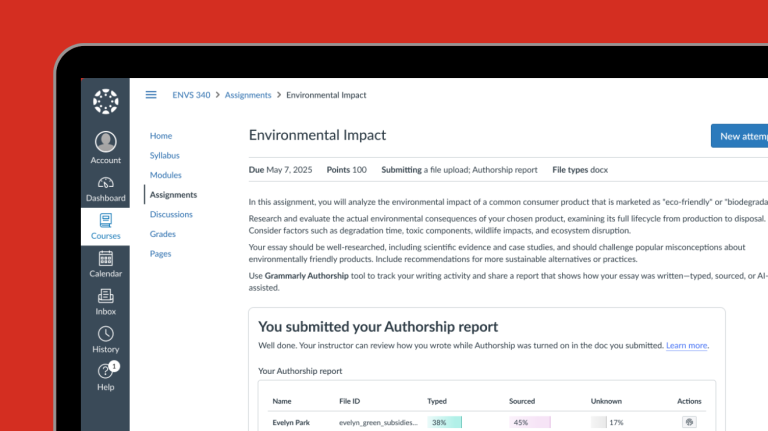As generative AI becomes a staple in virtually every ed-tech tool used to drive learning, educators and institutions face a critical challenge: how to support innovation while maintaining academic integrity. Grammarly is addressing this challenge head-on with the launch of Grammarly Authorship within Canvas LMS—a seamless integration that brings scalable writing transparency directly into the classroom.
Meeting the Moment: The Rise of AI in Education
The rapid adoption of AI tools has changed the academic landscape. While many institutions are open to integrating AI in the classroom, they require solutions that foster responsible use and mutual understanding between students and instructors.
To help bridge this gap, Grammarly first launched Authorship in beta for Google Docs in October 2024, followed by a Microsoft Word beta in April 2025. These early pilots aimed to answer one central question: How can we bring transparency to the writing process in a way that supports students and informs instructors—where students have control over their work and the ability to share their process with their professors without the fear of being falsely accused of inappropriate AI use?
The response has been overwhelmingly positive. In under a year, over one million Authorship reports have been generated. Students value the ability to show how they crafted their work—whether writing independently or using AI responsibly—while educators benefit from clearer insights into the writing process. And while not the primary goal, institutions also report seeing academic integrity violations drop due to the dual visibility into which sources were used crafting final submissions.
The Need for Canvas Integration
Despite these gains, feedback from educators was clear: for Authorship to work at scale, it needed to integrate directly into the systems they already use—most notably, Canvas.
That’s why Grammarly is proud to announce the launch of Grammarly Authorship within Canvas LMS, bringing writing transparency directly into assignment workflows with no extra steps for instructors or students.
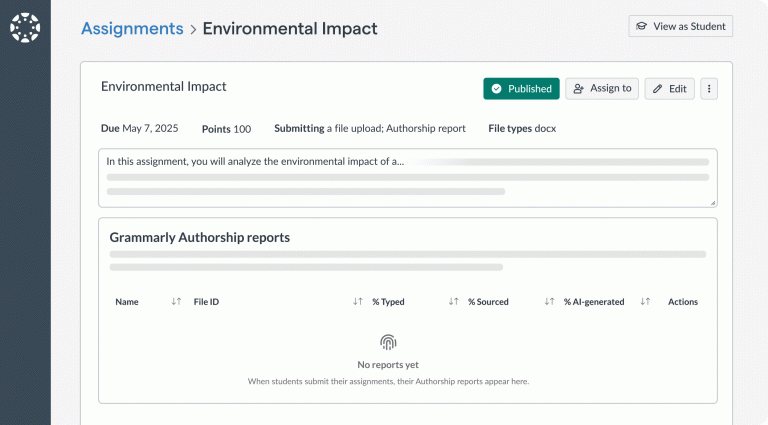
What Is Grammarly Authorship?
Grammarly Authorship tracks and attributes all sources of text in a document—typed text, pasted content, AI-generated suggestions, or edits made using Grammarly’s generative tools. The result is a detailed, student-controlled report that clearly shows how a piece of writing came together.
Unlike traditional detection tools, Authorship emphasizes transparency and attribution with student consent. Students can demonstrate their authentic writing process, and instructors can focus on guiding learning instead of policing with uncertain or imperfect data.
How the Canvas Integration Works
Starting this fall, instructors using Canvas can now require Grammarly Authorship reports as part of assignment submissions. Once enabled by the Canvas and Grammarly IT Admin, the assignment process is simple and fully integrated:
- Easy Instructor Setup: When creating a Canvas assignment, instructors can now enable a “Require Authorship Report” option in the submission settings.

- Students Write Where They’re Comfortable: Students continue writing in Google Docs (via the Grammarly Chrome Extension) or Microsoft Word (via the Grammarly Desktop App). With one click, they enable Authorship tracking and can monitor their report as they write. Because the tool is student-first, students can view their writing process data, but cannot manipulate it before sharing with their instructors, helping reduce information disparities and building two-way visibility into how students crafted their submissions and what text was attributed.
- Two-Click Sharing to Canvas: Before submitting, students simply click the “Share report” button and select, “Make this report visible to anyone” in their Authorship report interface. Students can optionally click the “Include writing replay” button if they want to share the full playback of their editing history with their instructor.
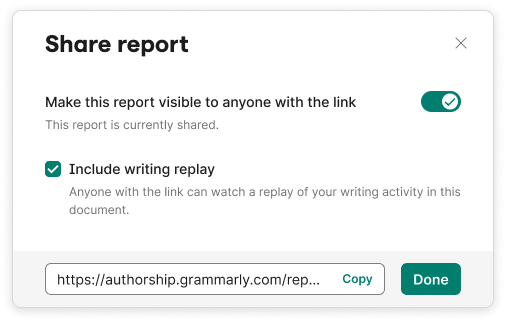
Seamless Submission: Once sharing is enabled and students submit the same document as they normally would in Canvas, the Authorship report is automatically attached to the student’s assignment submission—no need for additional uploads or manual steps.
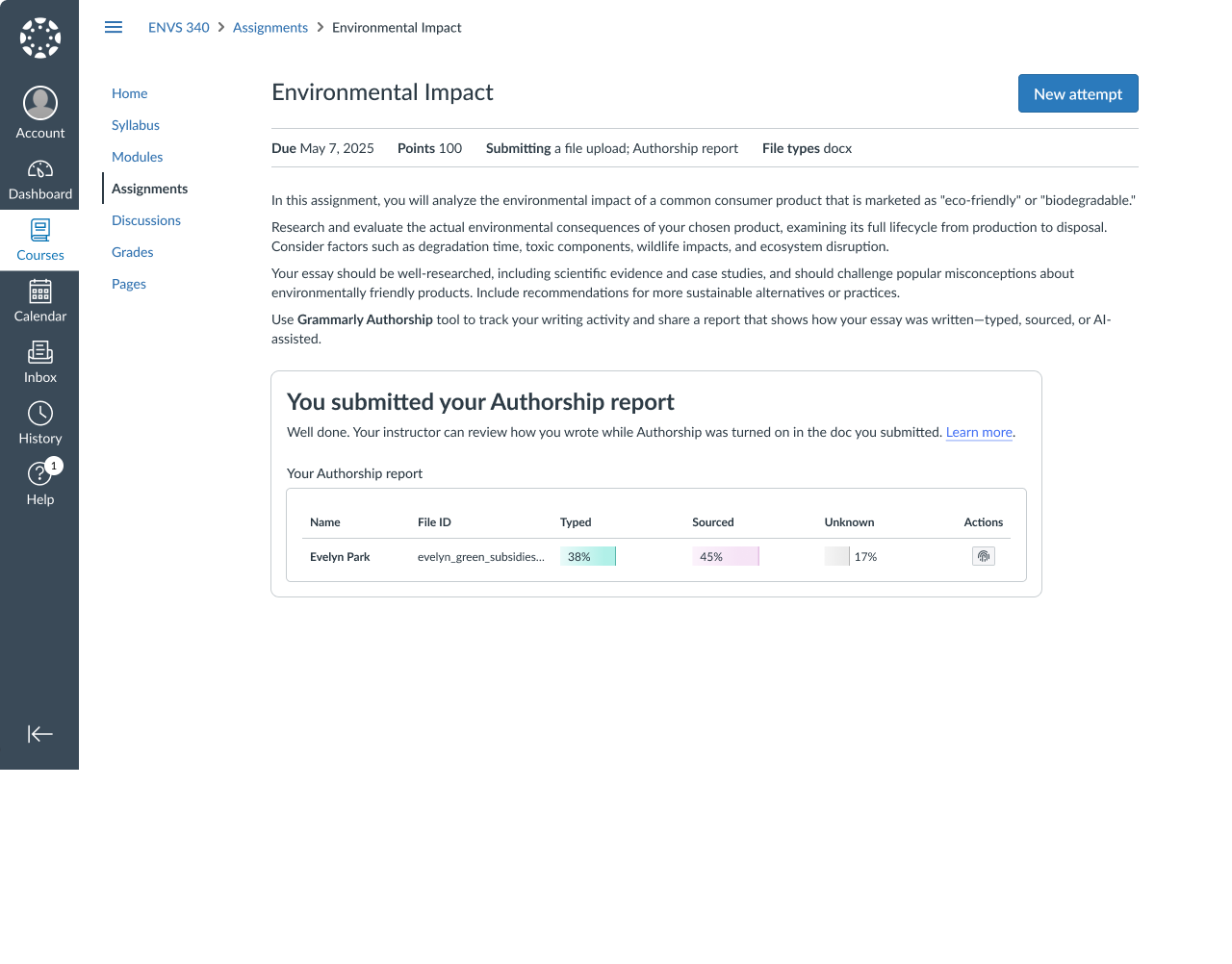
Instructor Insights at Scale: Instructors receive a class-level view of Authorship data, making it easy to identify outliers and patterns without reviewing each report individually.

Why It Matters
As generative AI reshapes the writing process, educators want students to focus on writing as a process—not just a product. But that requires trust. The new Canvas integration empowers all stakeholders with tools designed for today’s academic realities:
- For Students: A transparent, low-friction way to document their process and demonstrate integrity, whether they use AI or not.
- For Instructors: Scalable visibility into writing workflows—saving time and enabling better conversations about learning.
- For Institutions: A forward-thinking, tech-integrated approach to upholding academic standards in an AI-enabled world.
Available Now for Institutions Using Canvas
The Grammarly Authorship integration is available to Grammarly for Education customers on institution-wide plans who also use Canvas LMS. Administrators can install the LTI with just a few simple steps—click here for setup instructions.
By partnering with Instructure and leading academic institutions, Grammarly is committed to making writing transparency not just possible—but practical—in the era of AI.
To learn more or get started, contact Grammarly for Education.
Related Content
 outcomes_first.jpg
outcomes_first.jpgBlogs
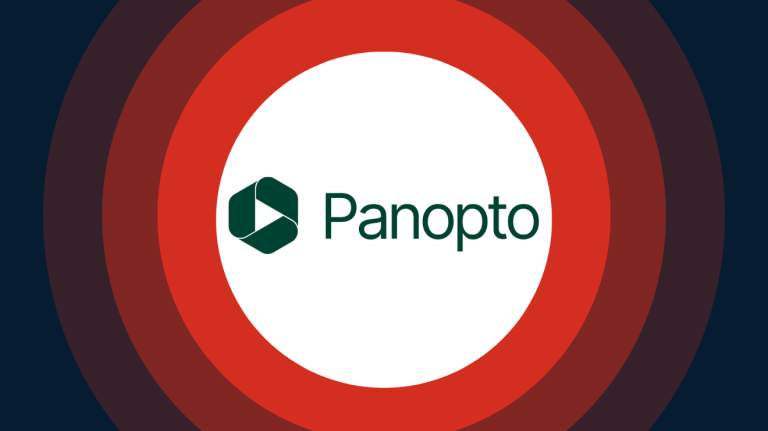 panapto-blog-thumbnail.png
panapto-blog-thumbnail.pngBlogs
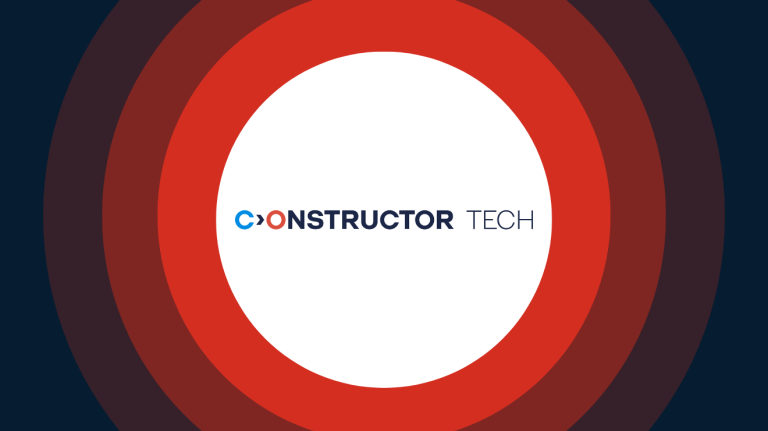 constructor-tech-blog-thumbnail.png
constructor-tech-blog-thumbnail.pngBlogs
